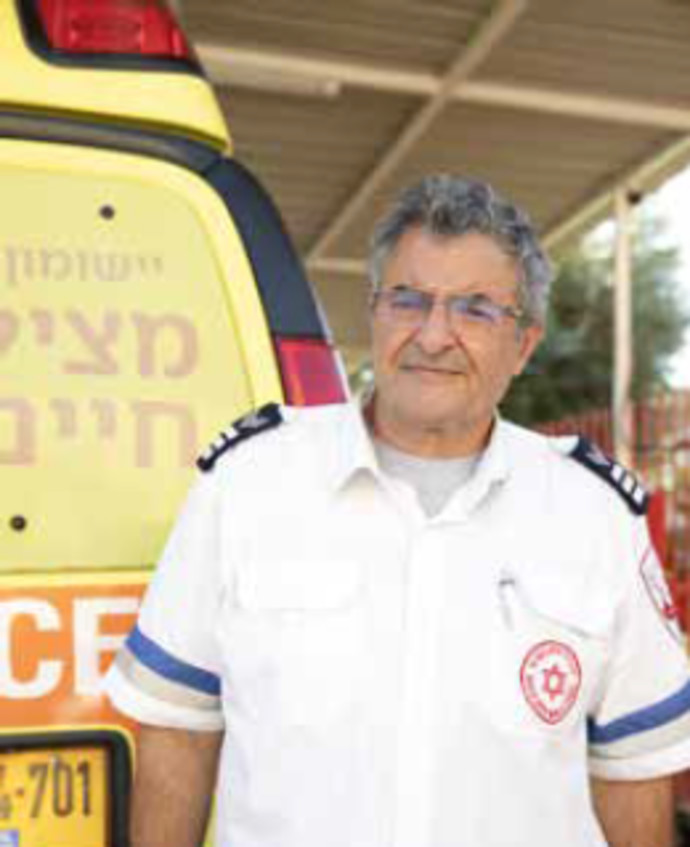On October 7th, dozens of terrorists stormed Kibbutz Sufa in the Eshkol district. Six members of the kibbutz’s emergency response team defended their homes and families, including Ido, the son of MDA volunteer Zohar Hubara. “That Shabbat morning, we woke up, like so many others, at 6:30 AM to the sound of the ‘Code Red’ sirens, which was different from what we were used to: it was longer and more frequent than usual. After that, we heard the sound of gunshots, something that had never happened before. It was clear that terrorists had infiltrated and that some of them were now inside our kibbutz. They murdered a kibbutz member who was in his car on his way out of the kibbutz, and they shot and killed another member in his own living room. Once the situation became clear, my son Ido, a Major in the IDF reserves, joined the emergency response team to protect our community. They identified the location where the terrorists had tried to infiltrate the kibbutz; the team managed to hold them off and prevent them from entering.”
Zohar has been an MDA volunteer for the last 35 years. In this capacity, he trains other medics, is himself a senior EMT and serves as the kibbutz ambulance driver. He’s used to being involved in difficult situations, including terror attacks and providing treatment under fire. “I was the one who arrived on the scene with the ambulance during most of the terrorist attacks in Gush Katif,” he says. “One memory that stands out was an attack in which a car packed with explosives drew up alongside a bus; it was a very severe attack with dozens of casualties.”

That morning, Zohar received a phone call. Although he’s used to giving medical treatment under fire, and as the kibbutz’s MDA ambulance driver, he has treated friends and acquaintances, this was a call of a completely different nature. “Someone from the emergency response team told me that my son, Ido, had been hit. I took my first aid kit and ran under fire. I reached him and immediately saw that he had sustained a very serious head injury.”
With bullets flying overhead, Zohar dragged his wounded and unconscious son to shelter in one of the nearby houses and ran to fetch the ambulance – ‘his’ ambulance, in which he’d treated so many others in the past. “I loaded him into the ambulance and began evacuating him when I realized I was driving with a flat tire. The terrorists had shot at the tires of the ambulance in order to stop us from saving lives.”
Zohar treated his son as best he could, with the years of experience and knowledge he had gained as an MDA volunteer medic. At that point, there was no one else who needed emergency treatment in the kibbutz, but Ido’s injury was very serious, and he didn’t survive. Zohar stayed with him for several more hours, in the immovable ambulance. “In retrospect, I realized that this was my own private mourning period with him, my own shiva,” Zohar says, his voice cracking for the first time. “I know I did everything I could. In hindsight, had I managed to evacuate him, I would probably have been shot, because the terrorists were everywhere. Any other ambulance that would have tried to approach us would have been hit. I am terribly sad that I was able to save so many people in the past, but I wasn’t able to save my own son. Once, I successfully resuscitated someone, and later had the privilege of sitting down with him for a cup of coffee. On the other hand, I have immense pride in what Ido and his friends did. They saved the kibbutz. They fought like the heroes of our heritage – the few versus the many, six members of the emergency response team against dozens of terrorists armed with a huge amount of weaponry.”
When I ask him if he will continue to volunteer, Zohar doesn’t hesitate. “My family and I were evacuated to Eilat, and I immediately went to the Eilat MDA station to help. They took me in with warmth and love. MDA is my home, it’s my commitment and something I love. I’ll never stop volunteering,” he concludes.
